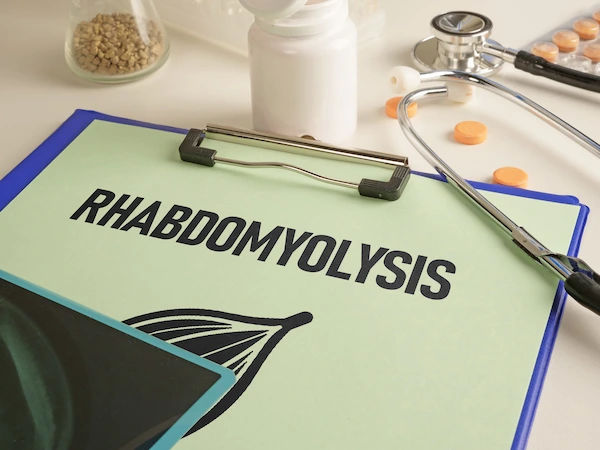Understanding ADHD
Gain a clear understanding of Attention-Deficit/Hyperactivity Disorder (ADHD), including its core symptoms, types, causes, and diagnosis. Learn about treatment options and strategies for effective daily management.

Written by Dr. J T Hema Pratima
Reviewed by Dr. D Bhanu Prakash MBBS, AFIH, Advanced certificate in critical care medicine, Fellowship in critical care medicine
Last updated on 25th Aug, 2025

Attention-Deficit/Hyperactivity Disorder (ADHD) is a common condition that affects both children and adults. If you or someone you know has ADHD, you might have questions about what it means and how to manage it. This guide will help you understand ADHD in simple terms, covering symptoms, causes, and ways to improve daily life.
What is ADHD?
ADHD is a neurodevelopmental disorder, which means it affects how the brain grows and functions. People with ADHD often struggle with focus, impulse control, and hyperactivity. While it’s commonly diagnosed in childhood, many adults also live with ADHD without realizing it.
Types of ADHD
There are three main types:
1. Inattentive Type: Difficulty focusing, staying organized, or following instructions.
2. Hyperactive-Impulsive Type: Restlessness, excessive talking, and impulsive actions.
3. Combined Type: A mix of both inattention and hyperactivity.
Common Symptoms of ADHD
Here are some of the common symptoms of ADHD:
In Children:
Trouble paying attention in school
Forgetfulness (losing books, homework, or toys)
Excessive talking or interrupting others
Difficulty sitting still (fidgeting, running around)
Acting without thinking (impulsivity)
In Adults:
Difficulty managing time or meeting deadlines
Forgetfulness (missing appointments, losing items)
Restlessness or feeling constantly "on the go"
Impulsive decisions (spending money, changing jobs frequently)
Trouble focusing on conversations or tasks
What Causes ADHD?
While the exact cause isn’t fully understood, research suggests a combination of factors:
Genetics: ADHD often runs in families.
Brain Structure & Function: Differences in brain activity affect attention and impulse control.
Environmental Factors: Exposure to toxins (like lead) during pregnancy or early childhood may increase risk.
Premature Birth or Low Birth Weight: These factors may contribute to ADHD development.
Myth Buster: ADHD is not caused by bad parenting, too much sugar, or lack of discipline. It’s a real medical condition that requires understanding and support.
Consult Top Specialists
How ADHD Affects Daily Life?
Living with ADHD can be challenging, but with the right strategies, people can thrive. Some common struggles include:
School & Work: Difficulty staying organized, meeting deadlines, or following instructions.
Relationships: Forgetfulness or impulsivity may cause misunderstandings.
Self-Esteem: Constant criticism ("Why can’t you just focus?") can lead to frustration and low confidence.
ADHD also comes with strengths, such as creativity, high energy, and problem-solving skills.
Managing ADHD: Tips & Strategies
While ADHD doesn’t have a cure, the right approach can make a big difference. Here are some helpful tips:
For Children:
Structured Routine: A daily schedule helps with predictability.
Break Tasks into Smaller Steps: Makes big tasks feel less overwhelming.
Positive Reinforcement: Praise effort, not just results.
Limit Distractions: A quiet study space helps with focus.
For Adults:
Use Planners & Reminders: Apps or sticky notes can help with organization.
Exercise Regularly: Physical activity improves focus and reduces restlessness.
Mindfulness & Meditation: Helps with impulse control and stress.
Seek Support: Therapy or ADHD coaching can provide useful strategies.
Diet & Lifestyle Changes
Balanced Diet: Protein-rich foods, omega-3s (fish, nuts), and whole grains support brain health.
Limit Sugar & Processed Foods: These can worsen hyperactivity.
Adequate Sleep: Poor sleep makes ADHD symptoms worse.
When to Seek Professional Help?
If ADHD symptoms interfere with daily life, it’s important to consult a doctor. A healthcare provider can diagnose ADHD through:
Behavioural Assessments (Questionnaires for parents, teachers, or self-reports)
Medical Evaluation (To rule out other conditions like anxiety or thyroid issues)
Treatment options include:
Behavioural Therapy: Helps develop coping skills.
Medication (if needed): Stimulants or non-stimulants can improve focus.
Lifestyle Adjustments: Exercise, sleep, and diet changes.
If you suspect ADHD in yourself or a loved one, Apollo24|7 offers expert consultations and support. Early diagnosis and management can make a huge difference in quality of life.
Conclusion
ADHD is a manageable condition with the right support. Whether you’re a parent, teacher, or an adult navigating ADHD, understanding and patience go a long way. Small changes in routine, diet, and mindset can lead to big improvements.
Remember, ADHD doesn’t define a person—it’s just one part of who they are. With awareness and the right tools, people with ADHD can lead happy, successful lives.
Consult Top Specialists
Consult Top Specialists

Miss. Vaishnavi Sankeshwar
Psychologist
5 Years • Msc Clinical Psychology
Bengaluru
Apollo Clinic, JP nagar, Bengaluru

Ms. Meenu Sharma
Psychologist
11 Years • PhD (Applied Psychology), MA (Applied Psychology),PG Diploma in Rehabilitation Psychology
Noida
Dr Kumar's Family Clinic, Noida
(50+ Patients)

Ms. Gunjan Arya
Psychologist
4 Years • MA Psychology
Delhi
Psych Therapy By Gunjan Arya, Delhi

Ms. Sapna Zarwal
Psychologist
20 Years • Msc (Applied Psychology), Ph D ( Special Education)
Gurugram
SOOTHING ZEN, Gurugram
(25+ Patients)

Ms. Monalisa Kha Bhaduri
Psychologist
12 Years • MA Psychology
Kolkata
Ms Monalisa Kha Bhaduri's Clinic, Kolkata
(225+ Patients)




